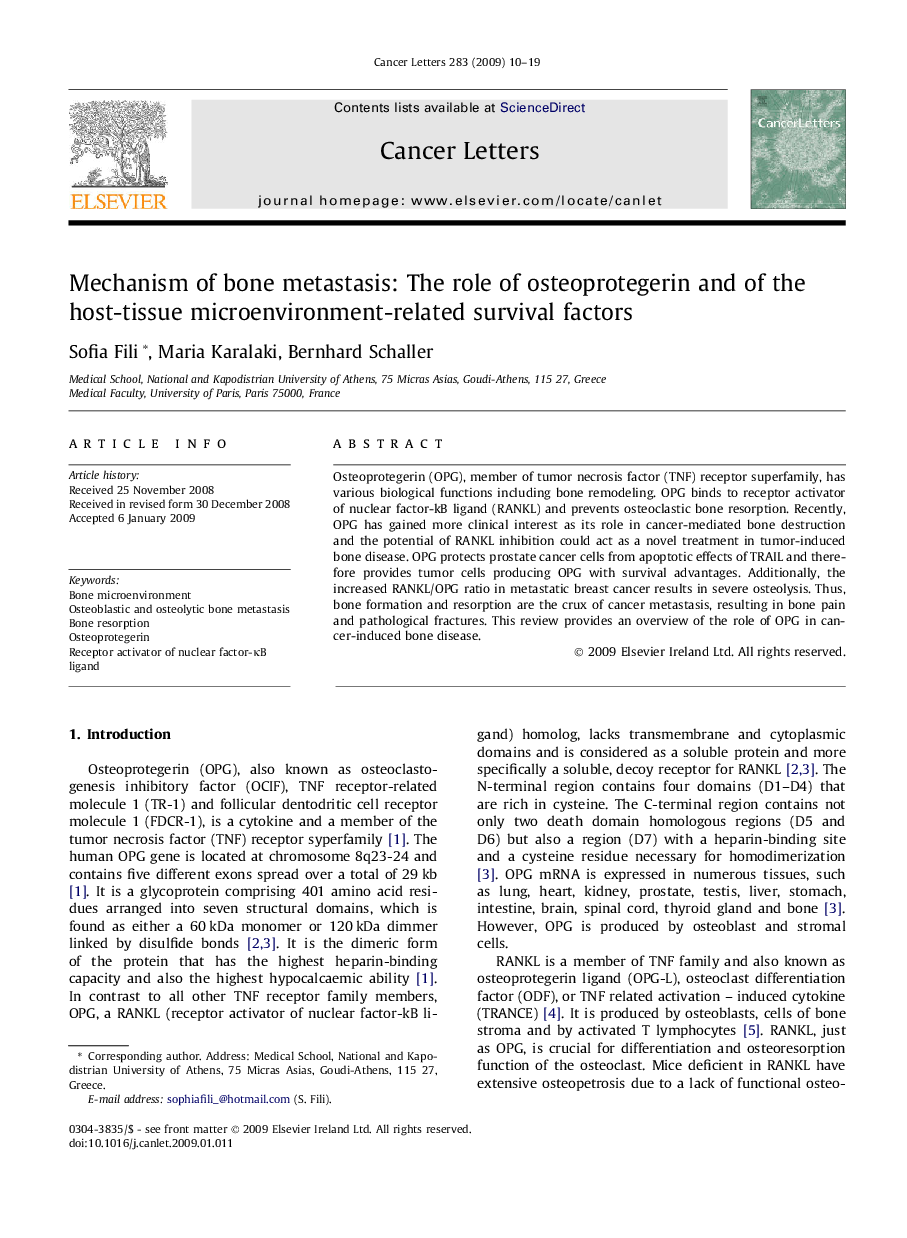| Article ID | Journal | Published Year | Pages | File Type |
|---|---|---|---|---|
| 2114298 | Cancer Letters | 2009 | 10 Pages |
Osteoprotegerin (OPG), member of tumor necrosis factor (TNF) receptor superfamily, has various biological functions including bone remodeling. OPG binds to receptor activator of nuclear factor-kB ligand (RANKL) and prevents osteoclastic bone resorption. Recently, OPG has gained more clinical interest as its role in cancer-mediated bone destruction and the potential of RANKL inhibition could act as a novel treatment in tumor-induced bone disease. OPG protects prostate cancer cells from apoptotic effects of TRAIL and therefore provides tumor cells producing OPG with survival advantages. Additionally, the increased RANKL/OPG ratio in metastatic breast cancer results in severe osteolysis. Thus, bone formation and resorption are the crux of cancer metastasis, resulting in bone pain and pathological fractures. This review provides an overview of the role of OPG in cancer-induced bone disease.
